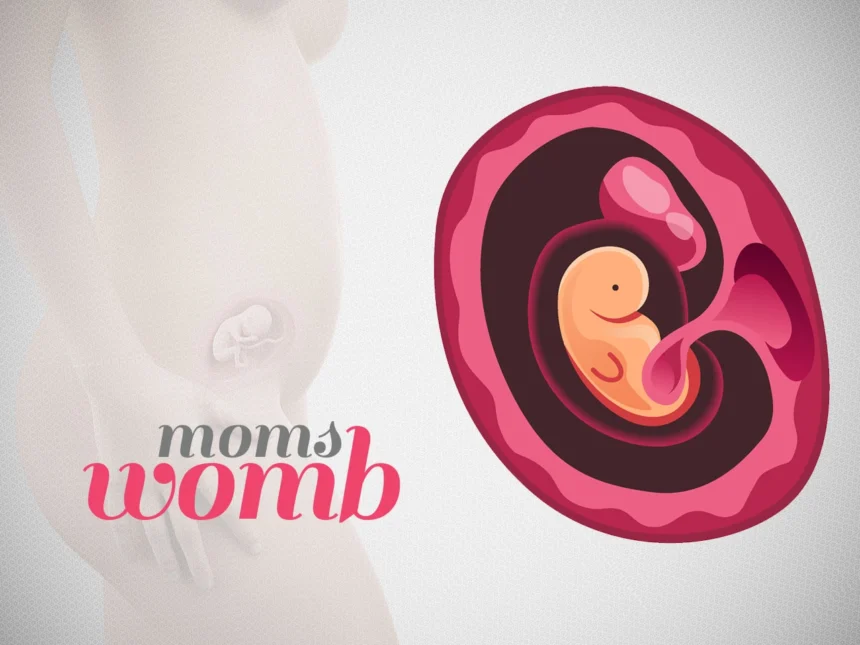1 Month Pregnant Period: A beautiful journey of pregnancy starts now!
If you are reading this and you are pregnant, congratulations! This is a happy and emotional event, especially for the first-time mother-to-be. A pregnant woman’s body is usually programmed to ensure that the woman gets everything the baby requires.
Total 9 months of pregnancy will be a beautiful journey in every woman’s life. Though it is a terrifying task to bring a new life into the world, this article will explain what to expect when you are 1 month pregnant and the necessary precautions you need to take during this period.
The most important thing in a 1-month pregnant woman is embryo development, which is essential for the baby’s safety and development. Usually, this is called the beginning of the embryo stage.
Everyone knows that pregnancy signs may not be clear during the early stages, and you are even unaware that you are 1 month pregnant. However, most women are excited to identify what happens through this period, and here are some precious data to clear the details for them.
What happens with you when you are 1 month pregnant?
Missed menstrual cycle
When you are one month pregnant, it will affect your body and your mind. After conceiving, a woman’s body starts the production of larger amounts of progesterone to stop the menstrual cycle and ensure a healthful pregnancy. Generally, the ovaries create progesterone hormone, but afterward, the placenta takes the role.
Morning sickness
The rapidly increasing hormone levels can make your stomach empty more slowly and thus causing nausea and even vomiting. Vomiting can be a sign that bothers you the whole day, whether day or night. This symptom starts during pregnancy week 3, but some women may notice it later or never during pregnancy.
Decreased libido
Increased levels of the pregnancy hormone progesterone can greatly affect your mood. These affected mood levels may increase or decrease your desire for sex. Women who experienced decreased libido during their first trimester may become normal in the second trimester. Most pregnancy symptoms will subside when the fatigue and morning sickness go away.
Breast tenderness
You may notice breast tenderness during this period. Some women may even feel their breasts sensitive and painful to touch, and the veins on the skin surface may become more visible. Nipple color may become even darker, and the glands around the nipple appear bigger.
Excessive salivation
Being 1 month pregnant, it is common to feel more saliva. These are the most common pregnancy symptoms in women dealing with severe morning sickness.
Fatigue
Generally, women don’t have the energy to carry out the same activities before the first month. You may easily fall asleep during the daytime because of exhaustion and tiredness. A pregnant woman’s body needs to spend more and more energy to maintain both the embryo development and the changes happing inside the mom-to-be. Increased progesterone levels when you are 1-month pregnant act as a sleeping pill.
Frequent urination in 1 Month Pregnant Period
Higher progesterone levels cause more blood flow to the uterus and thicken the uterine lining. Thickening of the uterine lining protects and facilitates the healthy growth and development of inner life. During pregnancy, kidneys will increase in size by almost 1.5cm, and increased hormone levels cause dilation of the uterus and the bladder, thus causing a sense of fullness and increasing an urge to urinate more frequently.
Aversions
Usually, pregnant women have an increased sense of smell and thus triggering instant nausea from any strong odors. It is more common to feel repulsion towards certain foods and smells.

What happens with your baby when you are 1 month pregnant?
Conception – The first thing that happens for baby development
When the sperm meets the egg, conception takes place, and then the just conceived fetus starts with cell division. During this process, cells start increasing in their number, thus beginning the formation of vital organs. In pregnancy 1st month, even earlier, some women may realize that they are pregnant, and the fetus starts development to survive in the outside world. Granulation tissue
Development – Elements that support for baby’s growth
During the 1st month of pregnancy, many things take place to ensure your baby’s growth. Along with fertilized ovum, the other things that participate during this entire process are the amniotic sac, the amniotic fluid, and the placenta.
The placenta supplies essential nutrients for the growing fetus. The amniotic sac is totally filled up with fluid, in which the unborn baby grows and develops. To keep the little life warm inside, the temperature in the amniotic sac is slightly higher than the mother’s temperature, i.e. 99.7 F. The amniotic liquid found in the sac contains hormones, nutrients, antibodies, and water.
Formation – Baby’s parts that begin their formation during the 1st month
When you are a 1st month pregnant, the spinal cord, the heart, and the fetus’s lungs begin their development. The baby’s growth during the 1st month is approximately 2-4 millimeters.
What are the physical changes that occur in a 1 month pregnant woman?
During pregnancy 1st month, there won’t be any visible changes. You will be almost looking the same way that you were before. Weight gain doesn’t start until succeeding months, and it will be steady.
You may feel breast tenderness, tingling, and unusual sensitivity to touch, especially during the first trimester. Gradually, your breasts may become bigger and even fuller. The color of the areola and the skin around the nipples will become darker. You may notice swelling of the ankles due to water retention in the body.
What care should be taken by a 1 month pregnant woman?
- Healthy eating is very important for your baby’s healthy growth and development. Foods containing vitamins, such as egg, meat, milk, fresh fruits and vegetables, seeds, nuts, honey, and meat should be part of your diet. Avoid eating fast and processed foods or any unhealthy additives. Eat sufficient levels of fiber cereals, such as rice, muesli, and rye.
- Start taking prenatal vitamins, such as folic acid, iron, and calcium. Folic acid is essential for healthy baby development. It helps to prevent congenital disabilities.
- Avoid lifting heavy objects, such as lifting weights, repetitive lifting, and carrying heavy objects. Do moderate exercising, swimming, or aerobics.
- Take enough rest. Usually, pregnant women need more sleep than usual, about 8-10 hours. During sleep, your body starts working more effectively because there is not any waste of energy for other activities.
- Stop drinking alcohol and smoking, which can cause significant problems for your baby. Positive thinking is the key to the physical and mental well-being and the health of your little one.









